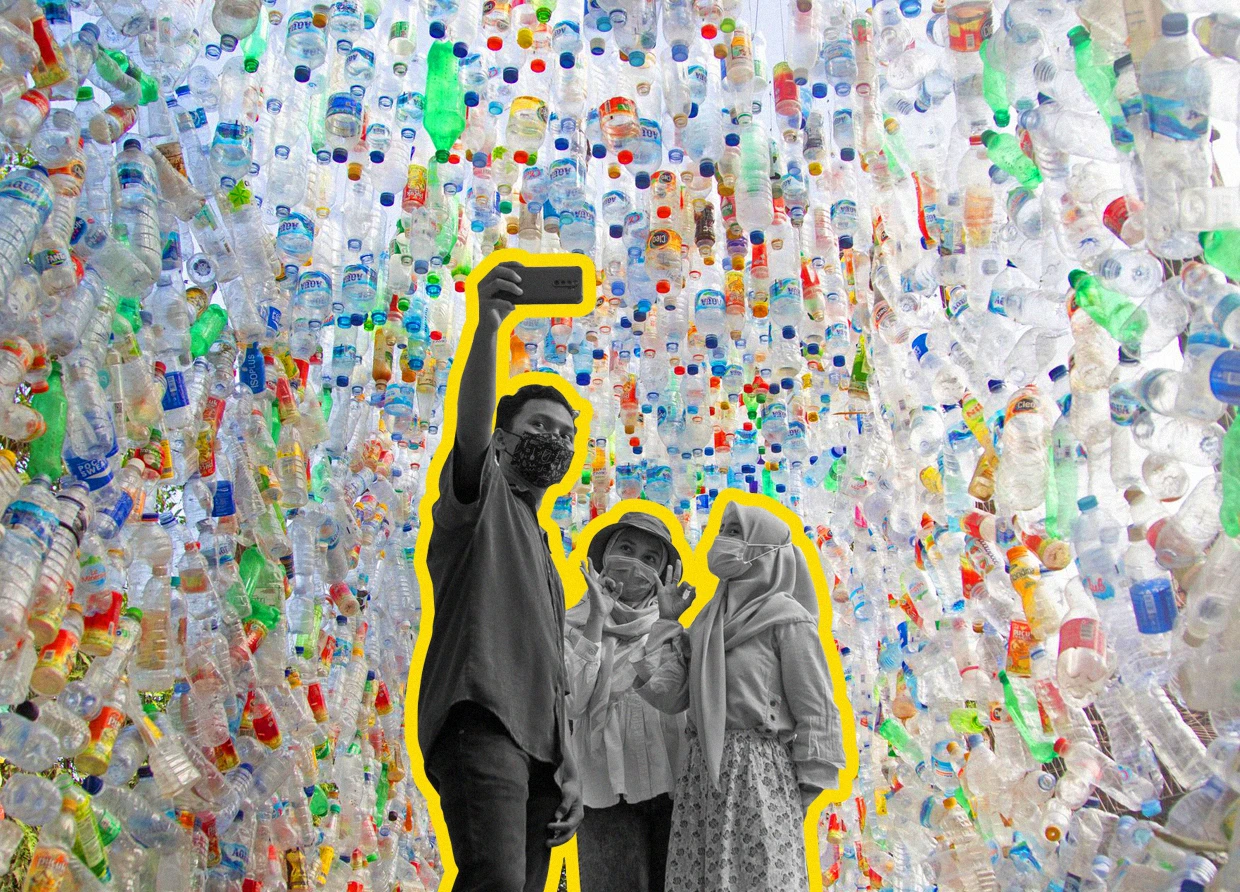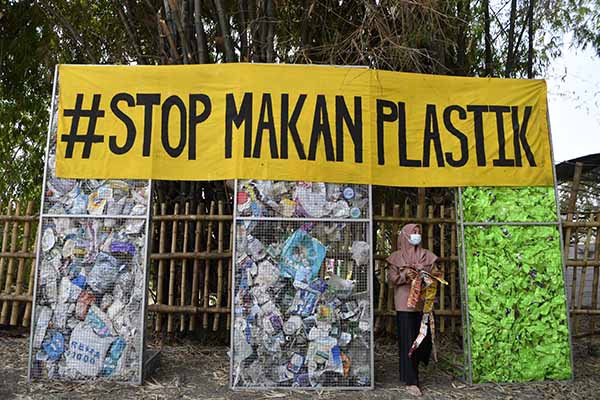A MUSEUM MADE FROM PLASTIC WASTE IN GRESIK
Reduce the use of single-use plastics, the climate change is real!

Indonesia is facing a plastic waste emergency. According to the UN, around 8 million tonnes of plastic are dumped into the ocean every year. Indonesia contributes more than 600,000 tonnes of that, estimates the Indonesian Institute of Sciences.
Indonesia has some of the most biodiverse and important coral reef systems in the world. But, over the past few decades, those habitats have faced many challenges, including plastic pollution.
Therefore, some activists in Indonesia worried about plastic pollution wanted people to rethink their usage. So they built a museum made from more than 10,000 discarded bottles, bags, straws and single-use food packaging.
The massive haul of items was fished out of local rivers and beaches that have become a dumping ground for such things, posing a significant threat to marine life, ecosystems, and communities worldwide.

The museum, which was opened in Gresik, East Java province, features thousands of plastic bottles that dangle overhead as visitors pass through the site, highlighting the sprawling impact of the marine crisis.
While it is difficult to calculate precisely how much plastic has ended up in the world’s oceans, scientists have estimated that the yearly figure of waste being dumped could be as high as 12.7 million metric tons, according to data published in the journal Science.
Small steps for big changes
According to Washington Post, Experts say that some initiatives to reduce individual plastic use, such as banning plastic straws, only have a minimal impact on plastic pollution — so wider efforts to ensure better waste collection and the use of recycled or biodegradable material are also essential.
Along with the climate crisis, world leaders have also faced questions over the issue of plastic pollution, with advocacy groups calling on officials to do more to help struggling communities.
Scientists have stressed that while it is paramount that officials take the issue of a warming climate seriously, the marine crisis should not be sidelined.
“Climate change is undoubtedly one of the most critical global threats of our time,” Heather Koldewey of the Zoological Society of London told the BBC last month.

“Plastic pollution is also having a global impact; from the top of Mount Everest to the deepest parts of our ocean,” she said, adding that both problems were intertwined and having a negative impact on ocean biodiversity.
“It’s not a case of debating which issue is most important, it’s recognizing that the two crises are interconnected and require joint solutions,” Koldewey said.
Dewi Sri becomes a centerpiece

Like written in Reuters, the outdoor exhibition in the town of Gresik in east Java took three months to assemble and was made up of more than 10,000 plastic waste items, from bottles and bags to sachets and straws, all collected from polluted rivers and beaches.
The centerpiece is a statue called "Dewi Sri", a goddess of prosperity widely worshipped by the Javanese. Her long skirt is made from single-use sachets of household items.
"We want to send information to the people to stop the use of single-use plastic," said the museum's founder Prigi Arisandi.
"These plastics are very difficult to recycle, starting today, we should stop consuming single-use plastic because it will pollute our ocean, which is also our source of food."
The plastics problem is particularly acute in Indonesia, an archipelago nation that ranks second only behind China for its volume of plastics that end up in the seas.
#THE S MEDIA #Media Milenial



























